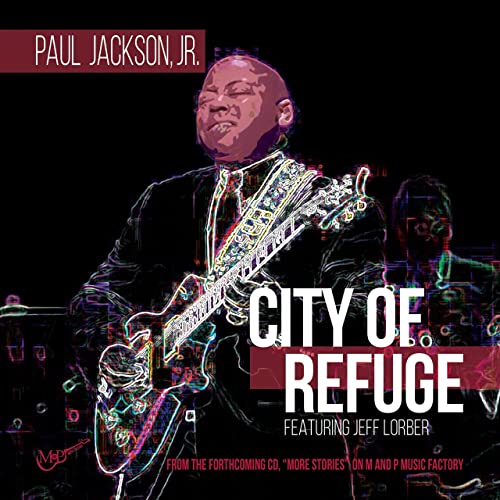


Lorber throws in some killer vamps on a variety of keys and Marienthal's alto solo accents the changes even as it glides over the top. Haslip's bass is bubbling and funky while Colaiuta lays out some outstanding breaks on the repetitive theme. The title track is a driving dance number (it's named for the Manchester dance club), with some surprising rhythmic changes inside the groove. This tune is followed by the majestic, midtempo "The Steppe," a shimmering, layered groover with crystalline piano from Lorber, soulful alto from Marienthal, and a virtual orchestra of guitars from Thompson. Ed Mann's marimba fills out the sound and adds lyric counterpoint. There are fine keyboard and violin solos - and killer wah-wah guitar from Thompson - as this band weds itself to the composer's shifty time changes and spidery melodies. There's a rockist backdrop, and Haslip's bassline not only threads the changes but foreshadows them. The band attacks it with discipline and class. There is a real surprise here in the cover of Frank Zappa's "King Kong," with guest Jean-Luc Ponty on violin. While its pulse is kept by Haslip and expanded by Colaiuta, the complex lyric sets up terrific solos by Mann, Lorber, and Koonse. "Solar Wind," featuring guest Larry Koonse on guitar, is a fine example of Lorber's current obsession with intricate composition. and Michael Thompson, horn players Eric Marienthal and David Mann, and percussionist Lenny Castro. There are a slew of studio regulars here to boot, including guitarists Paul Jackson, Jr. Co-produced by Lorber and bassist Jimmy Haslip, the trio is rounded out by drummer Vinnie Colaiuta. Quote: Hacienda is the third volume in the Jeff Lorber Fusion's revisioning of the music they began with in the late '70s and early '80s, with a 21st century twist.


 0 kommentar(er)
0 kommentar(er)
